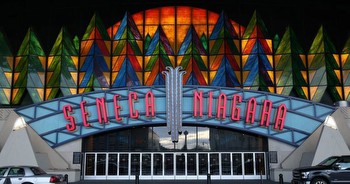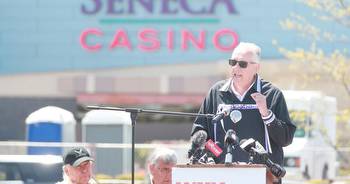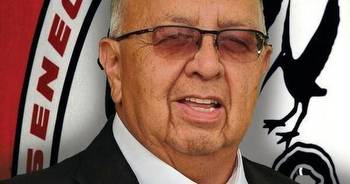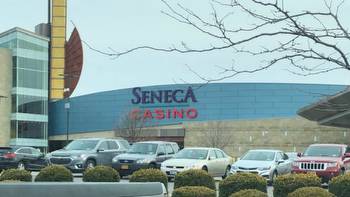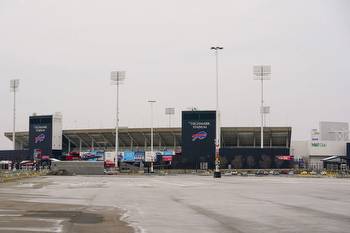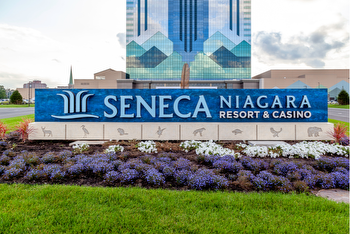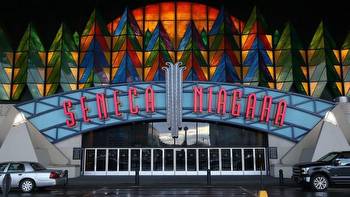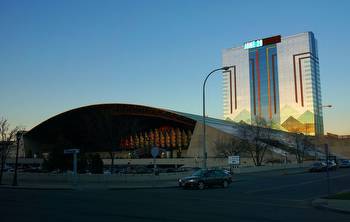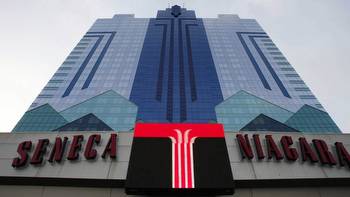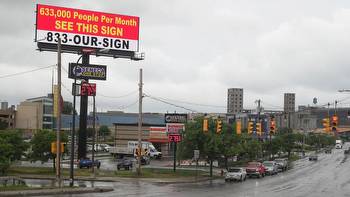Seneca Nation settles multi-million dollar casino dispute, seeks new gaming pact with NY
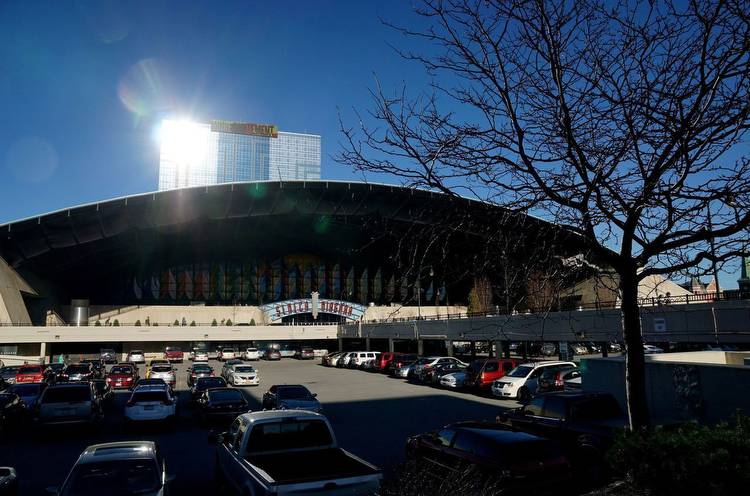
The Seneca Nation of Indians has agreed to settle a long-running dispute over payments it makes to the state from its Western New York casino revenues, but is seeking a new gaming compact with the state in return.
Under the agreement, the Senecas will pay the state the nearly $500 million in revenue-sharing money it has withheld since the dispute began in early 2017. That money has been held in escrow during the dispute. The Senecas also agree to resume quarterly payments.
The roughly $100 million per year comes a 25% fee the Senecas pay on slot and video lottery machine revenues at its casinos in Buffalo, Niagara Falls and Salamanca in Cattaraugus County. The money goes to the state, which then sends a portion to each casino’s host city.
The Senecas had argued that their obligation to make the payments expired at the end of 2016, according to their interpretation of the nation’s existing gaming compact with the state. The state disagreed, and arbitration panels and state courts have consistently supported the state’s side.
The Senecas said they will now turn their attention to making a new agreement with the state that gives them greater control over their casino operations.
“Rather than pursue continued legal action, we believe we can now best address our concerns in a Compact with greater clarity on our obligations, and, as important, the obligations New York State has to the Nation in return,” Seneca Nation President Matthew Pagels said in statement released late Wednesday. “Furthermore, we want to see the momentum generated by our investments and operations continue to grow, and we look forward to building on our strong relationships with our neighbors in Niagara Falls, Salamanca and Buffalo. Now is the time to move forward.”
New York Gov. Kathy Hochul released a statement Wednesday night that acknowledged the resolution of the payment dispute.
“I am pleased to have reached an agreement for the resumption of payments on terms that serve both the State and the Nation and that benefit Western New York communities, and I look forward to beginning discussions toward a new compact,” Hochul said.
The Senecas operate their three casinos under a compact originally signed with the state in 2002. The compact gave the Senecas exclusive rights to run casinos in a 14-county region of western New York. In return, the nation pays the state the 25% of its slot and video lottery revenues.
The dispute began in March 2017, when the Senecas announced they believed they were no longer obligated to make the payments. The Senecas argued the terms of the original agreement requiring revenue payments ended 14 years from the original compact — or at the end of 2016. They made their last payment, $30 million covering the last quarter of 2016, in March 2017.
The state won an initial ruling in its favor from an arbitration panel in 2019, and federal appeals courts have backed that up since then.
The Oneida and Akwesasne Mohawk nations also operate casinos under compacts with the state, but each is a separate agreement with varying terms and conditions. Each compact does give the Indian nations exclusive gaming rights in certain regions. The state has since allowed private, non Indian-nation-owned casinos to operate in parts of Upstate New York not covered by Indian nation compacts.
Don Cazentre writes about Upstate NY casinos for NYup.com, syracuse.com and The Post-Standard. Reach him at dcazentre@nyup.com, or follow him atNYup.com, on or.








